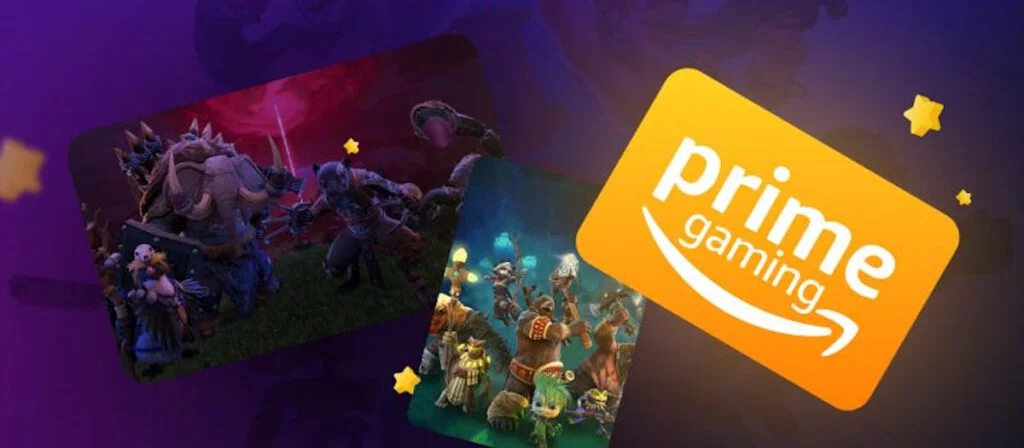Amazon Prime is offering free gaming NFTs to its subscribers through its Prime Gaming portal. At a $15 monthly fee, Amazon Prime subscribers can acquire a diverse array of NFTs that are compatible with particular blockchain games. These digital assets range from special skins to unique playable characters.
To claim these NFTs, subscribers can navigate the “in-game content” section on the website and select the “claim” option. The offering is part of a recently announced six-month partnership between Amazon and game developers like Mojo Melee and Blankos Block Party.
Specifically, Amazon Prime is featuring an NFT for Dawn Striker, an in-game champion for the Polygon-based strategy game Mojo Melee. Another set of NFTs focuses on the PC game Blankos Block Party, offering the Twilight Strix Blanko character and the Midnight Crest Helmet.
These NFTs also include native cryptocurrencies of the respective games, such as Ore for Mojo Melee and Blanko Bucks for Blankos Block Party.

Amazon’s Gaming Strategy
Amazon Prime’s addition of NFTs comes on top of its already robust suite of gaming-related perks. The platform has a history of offering free downloadable games and special in-game content for various titles.
Moreover, Amazon’s ownership of Twitch, the live-streaming platform favored by gamers, suggests a deeply integrated gaming strategy aimed at increasing subscriber engagement and loyalty. The inclusion of NFTs is the latest extension of Amazon’s multi-faceted approach to capitalize on gaming trends and broaden its appeal within the NFT marketplace.
Community Response: A Mixed Bag of Opinions
As Amazon Prime makes strides to integrate NFTs, it is worth noting that the broader gaming community has expressed varied opinions about the technology. Established companies such as Ubisoft, Konami, and Discord have attempted to embed NFTs within their ecosystems but faced resistance from their user base. Criticism often centers on the environmental impact of blockchain technology, as well as skepticism about the actual utility and value of these digital assets.

For instance, Ubisoft’s Quartz NFT initiative did not receive a warm reception, generating a mere $400 in sales within the first two weeks of its launch. This underscores the controversial nature of NFTs within the gaming sphere and highlights the challenges companies may face as they seek to adopt blockchain-based technologies.
Conclusion
Amazon Prime’s decision to offer free gaming NFTs represents a notable development in the intersection of mainstream subscription services and blockchain technology. While this move aims to enhance the value proposition for Prime subscribers, it also invites scrutiny and debate within the gaming community. As the six-month partnership progresses, it will be instructive to observe whether this initiative resonates with the platform’s user base or faces challenges similar to earlier industry attempts.


